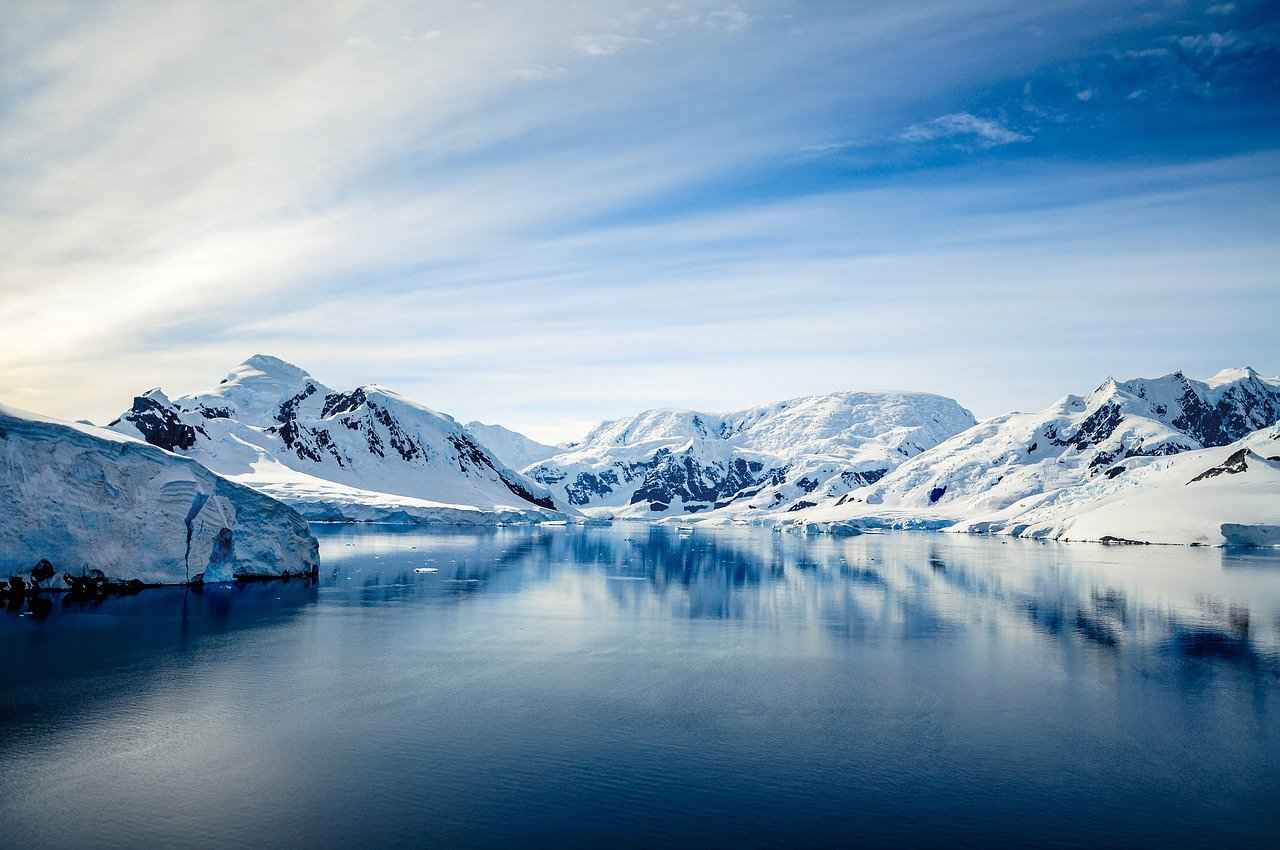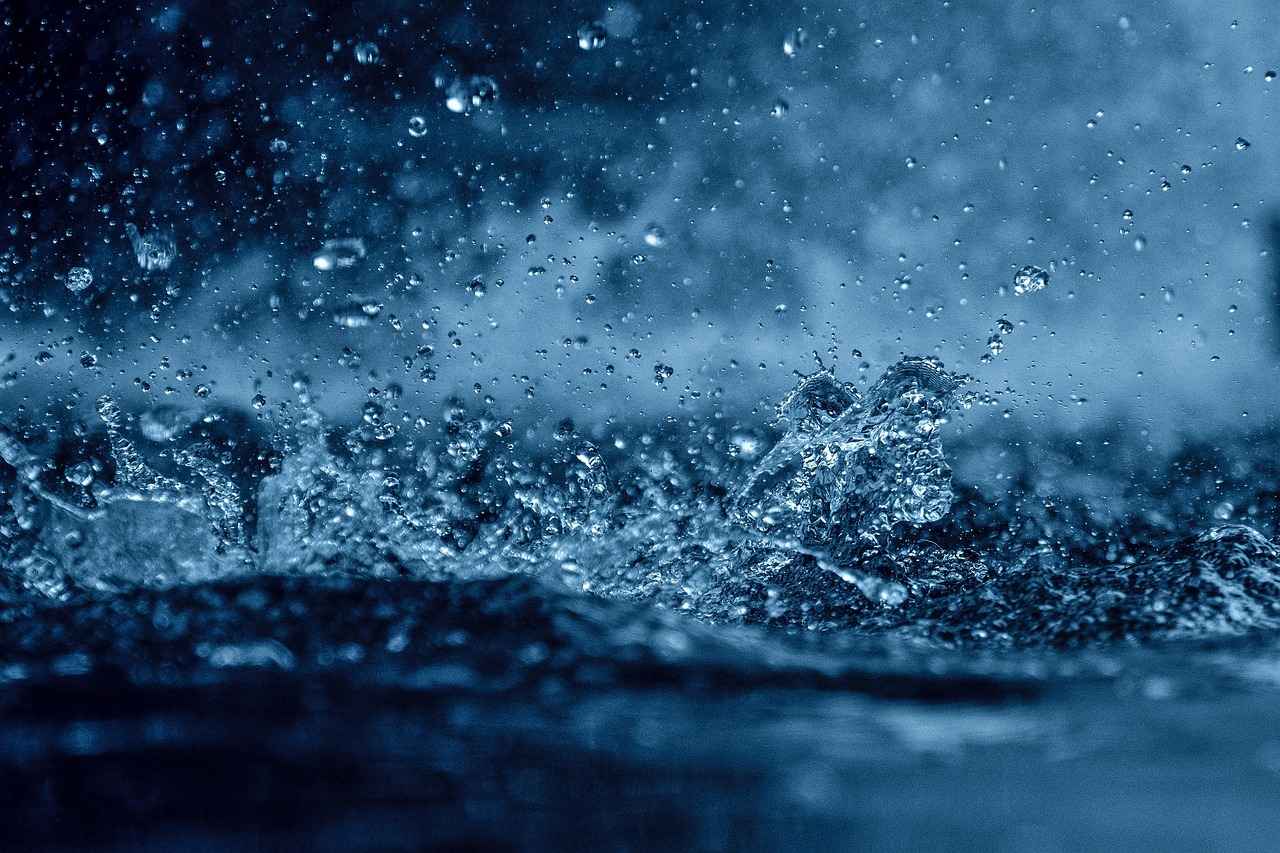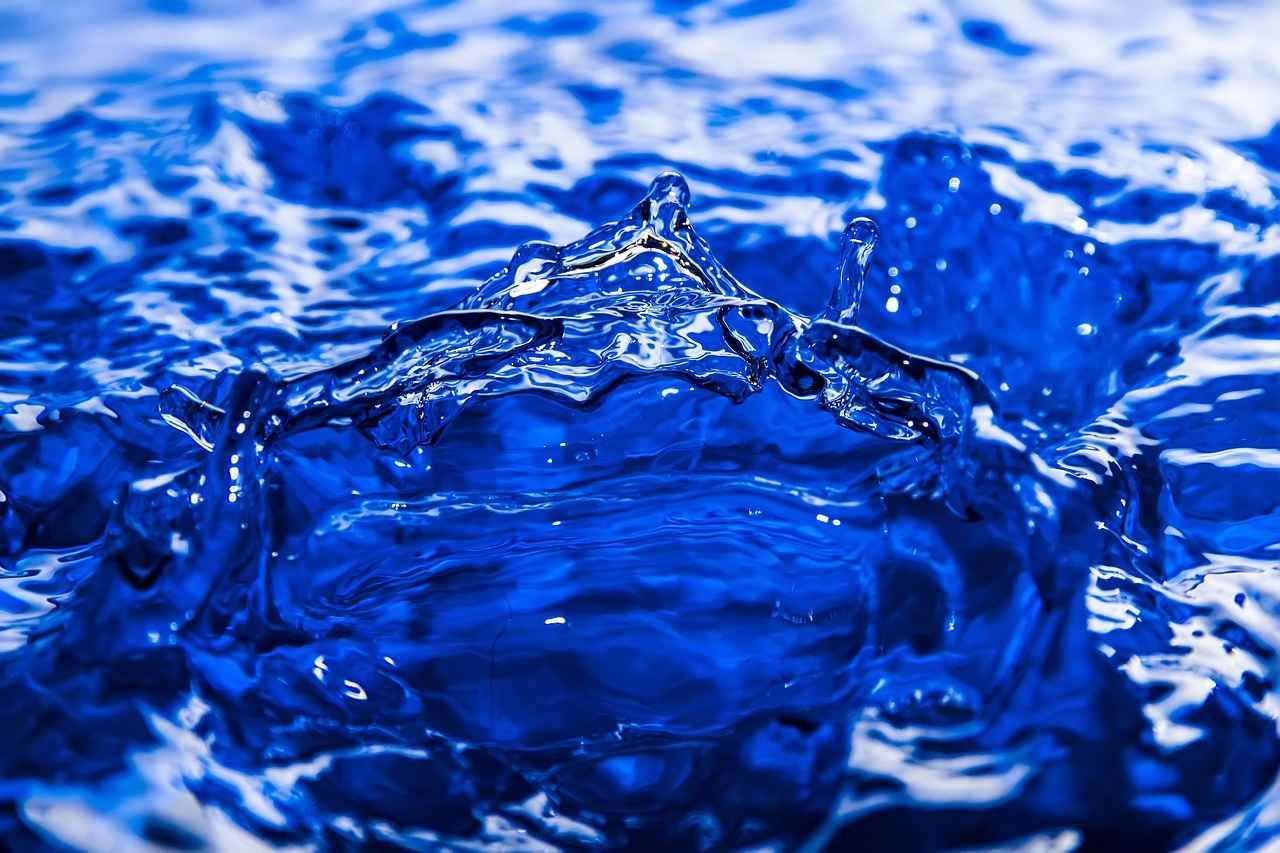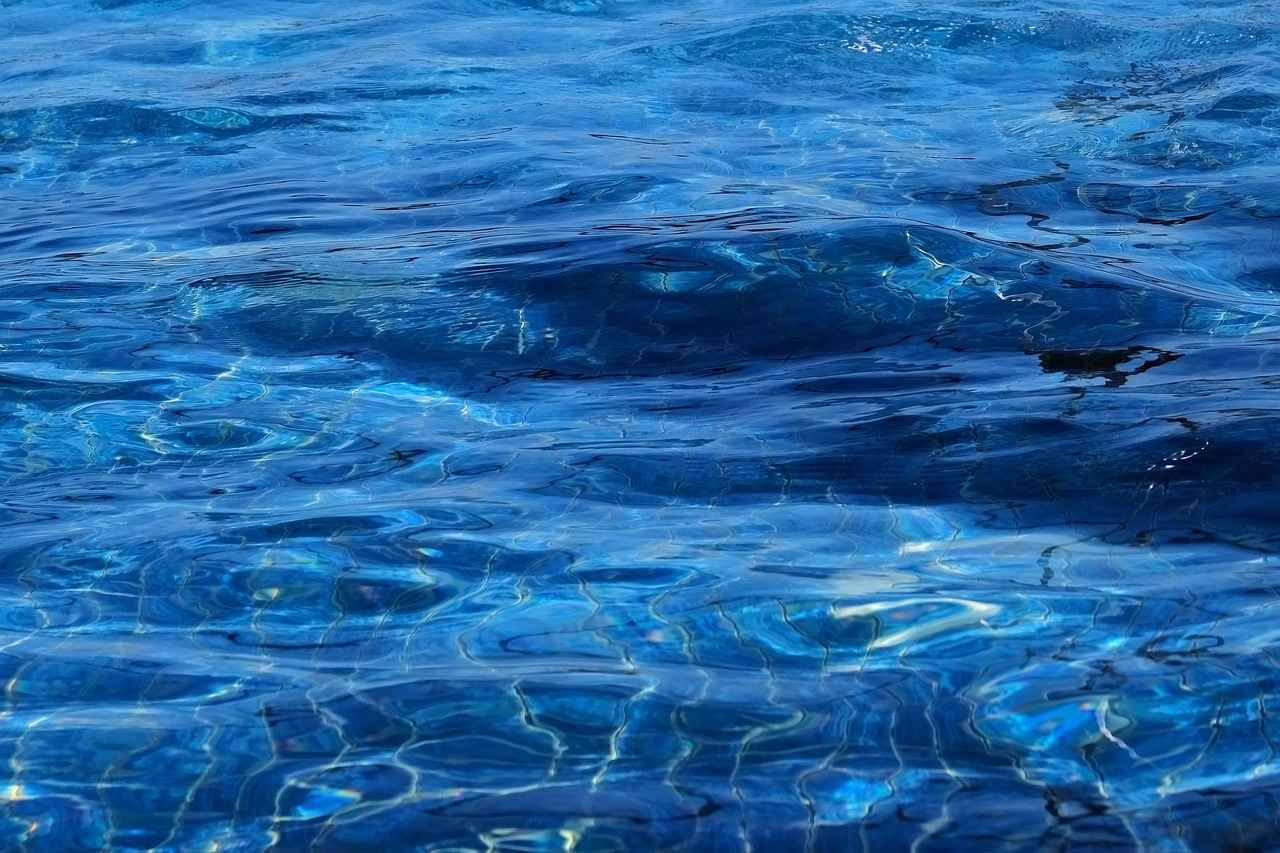This article explores the various benefits of undertaking a 7-day water fast, detailing what individuals can expect during the process and the potential health advantages associated with this practice.
What is a 7-Day Water Fast?
A 7-day water fast involves consuming only water for an entire week. This practice has roots in various religious and cultural traditions, where fasting is often used for spiritual cleansing or as a means of self-discipline. In modern times, it has gained popularity as a method for detoxification and health improvement.
Health Benefits of Water Fasting
Water fasting can lead to numerous health benefits. Research suggests that fasting may improve metabolic health, support weight loss, and enhance mental clarity. Below, we delve into these benefits in detail:
- Weight Loss and Fat Burning
One of the most notable effects of a 7-day water fast is significant weight loss. During fasting, the body shifts its energy source from glucose to stored fat, leading to fat burning and weight reduction.
- Caloric Deficit and Fat Utilization
As the body enters a caloric deficit, it begins to burn fat for fuel. This metabolic shift is crucial for understanding how fasting promotes weight loss and fat utilization.
- Impact on Metabolic Rate
Short-term fasting can influence metabolic rate. Studies indicate that fasting may temporarily increase metabolism, enhancing fat oxidation and supporting weight loss efforts.
- Detoxification and Cellular Repair
Fasting is often praised for its detoxifying effects. A 7-day water fast may facilitate cellular repair processes, allowing the body to eliminate toxins more effectively.
Mental Clarity and Focus
Many individuals report increased mental clarity during fasting. This phenomenon can be attributed to the brain’s adaptation to using ketones as an energy source, which may enhance cognitive function.
- Effects on Brain Function
Research suggests that fasting triggers neuroprotective mechanisms, potentially supporting cognitive longevity and improving focus.
- Emotional and Psychological Benefits
The psychological effects of fasting can be profound. Many people experience improved mood and emotional resilience during a 7-day water fast, contributing to overall well-being.
Potential Risks and Considerations
While there are many benefits, a 7-day water fast is not without risks. It’s essential to consider potential side effects such as fatigue, headaches, and electrolyte imbalances that may arise during the fast.
- Who Should Avoid Water Fasting?
Not everyone should attempt a 7-day water fast. Individuals with certain medical conditions, pregnant or breastfeeding women, and those with a history of eating disorders should consult healthcare professionals before starting a fast.
How to Prepare for a 7-Day Water Fast
Preparation is key for a successful water fast. Gradual dietary adjustments leading up to the fast can ease the transition, making the experience more manageable.
- Staying Hydrated and Mindful
Hydration is crucial during a water fast. It’s important to maintain hydration and mindfulness throughout the fasting process to support overall health.
Post-Fast Recovery and Refeeding
The period following a water fast is critical for recovery. It is essential to reintroduce food gradually, starting with light meals to ensure a smooth transition back to regular eating habits.

What is a 7-Day Water Fast?
A 7-day water fast is a method of fasting that involves consuming only water for an entire week. This practice has been utilized for centuries, with roots in various cultures and religions, serving both spiritual and health-related purposes. In recent years, it has gained popularity in the wellness community as a means to detoxify the body, promote weight loss, and enhance overall health.
The basic concept of a water fast is straightforward: participants abstain from all food and caloric beverages, relying solely on water for sustenance. This approach is believed to initiate a state of autophagy, where the body begins to break down and recycle damaged cells, thereby promoting cellular repair and rejuvenation. This biological process is crucial for maintaining health and preventing diseases.
Historically, fasting has been practiced for various reasons, including religious observances, purification rituals, and as a form of traditional medicine. Many ancient cultures recognized the benefits of fasting, often using it as a tool for healing and spiritual growth. In modern times, the rationale behind a 7-day water fast has shifted towards health optimization, weight management, and metabolic improvement.
During a 7-day water fast, the body undergoes significant changes. Initially, it depletes glycogen stores and transitions to burning fat for energy. This metabolic shift can lead to rapid weight loss, as the body utilizes its fat reserves. Additionally, many people report experiencing heightened mental clarity and emotional stability during the fasting period, attributed to the release of neurotransmitters that can enhance mood and cognitive function.
Modern applications of water fasting have been studied extensively, with various scientific research indicating potential benefits such as improved insulin sensitivity, reduced inflammation, and enhanced brain function. However, it’s essential to approach this fasting method with caution, as it may not be suitable for everyone. Individuals with underlying health conditions or those who are pregnant should consult with a healthcare professional before attempting a water fast.
In conclusion, a 7-day water fast is a practice steeped in history that offers various potential health benefits. By understanding its principles and preparing adequately, individuals can safely explore this fasting method and its impacts on their health and well-being.

Health Benefits of Water Fasting
Water fasting is a practice that has gained significant attention in recent years, particularly for its potential health benefits. This method involves abstaining from all food and consuming only water for a set period, typically ranging from 24 hours to several days. Among the various durations, a 7-day water fast is particularly noted for its profound effects on the body and mind. In this section, we will explore the numerous health benefits associated with water fasting, focusing on its impact on metabolic health, weight loss, and mental clarity, all supported by scientific research.
One of the most significant advantages of water fasting is its ability to enhance metabolic health. During fasting, the body undergoes a series of metabolic changes that can improve insulin sensitivity and lower blood sugar levels. Research indicates that fasting can lead to a reduction in insulin levels, which is crucial for preventing insulin resistance—a key factor in the development of type 2 diabetes.
Weight loss is often one of the primary reasons individuals consider a 7-day water fast. When the body is deprived of food, it begins to utilize stored fat for energy, leading to weight loss. A study published in the Journal of Nutrition found that participants who engaged in intermittent fasting experienced significant reductions in body weight and fat mass. The caloric deficit created during a water fast forces the body to shift from burning glucose to burning fat, making it an effective strategy for weight management.
The concept of caloric deficit is central to understanding how fasting aids in weight loss. When you consume only water, your body taps into its fat reserves for energy, resulting in fat utilization. This process not only helps in reducing body weight but also promotes metabolic flexibility, allowing the body to switch between burning carbohydrates and fats more efficiently.
Interestingly, short-term fasting can also influence the metabolic rate. Studies have shown that fasting can increase the rate of fat oxidation, which may help maintain muscle mass while promoting fat loss. This dual benefit makes water fasting an appealing option for individuals looking to improve their body composition.
Water fasting is not solely beneficial for physical health; it also has significant effects on mental clarity and cognitive function. Many individuals report heightened focus and improved mental clarity during fasting periods. This phenomenon can be attributed to several factors, including the increase in the production of brain-derived neurotrophic factor (BDNF), which supports brain health and cognitive function.
Research suggests that fasting may trigger neuroprotective mechanisms that enhance brain function. For example, fasting promotes autophagy, a process that helps clear out damaged cells and proteins in the brain, potentially reducing the risk of neurodegenerative diseases.
The psychological effects of fasting can be profound. Many individuals experience improved mood and emotional resilience during a 7-day water fast. This improvement can be attributed to the release of endorphins and other mood-enhancing hormones that occur during fasting.
While the benefits of water fasting are compelling, it is essential to consider potential risks. Common side effects include fatigue, headaches, and electrolyte imbalances. Individuals with certain health conditions or those who are pregnant should consult healthcare professionals before attempting a water fast.
Preparation is crucial for a successful water fast. Gradual dietary adjustments leading up to the fast can ease the transition and enhance the fasting experience. Staying hydrated and mindful throughout the fasting process is also essential for maintaining overall well-being.
The period following a water fast is critical for recovery. It is important to safely reintroduce food and ensure a smooth transition back to regular eating habits to avoid digestive discomfort and other potential issues.
Weight Loss and Fat Burning
One of the most significant outcomes of a 7-day water fast is the remarkable weight loss it can produce. During this fasting period, the body enters a state where it begins to utilize its fat stores for energy, leading to substantial weight reduction. This section delves into the mechanisms behind this process and the physiological changes that occur.
When an individual engages in a water fast, the body undergoes a series of metabolic shifts. Initially, it relies on glycogen reserves, which are stored carbohydrates, to meet energy demands. However, these reserves are typically depleted within the first 24 to 48 hours of fasting. Once glycogen stores are exhausted, the body begins to transition into a state known as ketosis, where it starts breaking down fat for fuel.
This shift to fat utilization is crucial for weight loss. As fat cells are broken down, they release fatty acids into the bloodstream, which are then converted into ketones—an alternative energy source for the brain and body. This metabolic change not only promotes weight loss but can also enhance mental clarity and focus during the fasting period.
| Fasting Phase | Energy Source | Timeframe |
|---|---|---|
| Initial Phase | Glycogen | First 1-2 days |
| Transition Phase | Fat Stores | After 2 days |
| Ketosis Phase | Ketones from Fat | 3 days and beyond |
The caloric deficit created by a 7-day water fast is significant. With no food intake, the body naturally begins to burn stored fat, leading to a reduction in overall body weight. This process is often accompanied by a decrease in body fat percentage, which can be particularly appealing for those looking to improve their physique.
Furthermore, fasting can have a positive impact on the body’s metabolic rate. While some may fear that prolonged fasting could slow metabolism, research indicates that short-term fasting can actually enhance metabolic efficiency. This is due to the increased production of norepinephrine and other hormones that promote fat oxidation.
It’s important to note that the weight loss experienced during a 7-day water fast may not be solely from fat loss; there can also be a reduction in water weight. As glycogen stores are depleted, the body releases stored water, contributing to initial weight loss. However, the long-term benefits of fat loss during this fasting period can be substantial if followed by a balanced diet.
In summary, a 7-day water fast can lead to significant weight loss through the utilization of fat stores for energy. The transition from glycogen to fat as the primary energy source not only promotes weight reduction but can also enhance mental clarity and metabolic health. Understanding these processes can empower individuals to make informed decisions about their fasting practices and overall health.
Caloric Deficit and Fat Utilization
Understanding the caloric deficit created during a water fast is crucial for anyone considering this method of weight loss. A water fast, which entails consuming only water for a specified period, initiates significant metabolic changes in the body. During this fasting period, the body undergoes a remarkable transition from utilizing glucose as its primary energy source to burning stored fat.
Initially, the body relies on glycogen, which is stored in the liver and muscles, to meet its energy needs. However, as the fast continues and glycogen stores become depleted, the body enters a state known as ketosis. In ketosis, the liver converts fatty acids into ketone bodies, which serve as an alternative fuel source for the brain and other tissues. This shift not only aids in weight loss but also promotes a sense of mental clarity and increased energy levels.
The caloric deficit created during a water fast is primarily a result of reduced caloric intake. When the body is not receiving calories from food, it begins to utilize its fat reserves for energy, leading to weight loss. Studies have shown that individuals can lose a significant amount of weight during a week-long water fast, with some reporting losses of up to 10% of their body weight.
To better understand this process, consider the following table that outlines the stages of energy utilization during a water fast:
| Stage | Duration | Energy Source |
|---|---|---|
| Glycogen Depletion | 0-24 Hours | Glycogen |
| Fat Oxidation | 24-72 Hours | Fat Stores |
| Ketosis | 72+ Hours | Ketone Bodies |
As the fast progresses, the body becomes more efficient at burning fat. This process is not just beneficial for weight loss; it also has therapeutic implications. Research indicates that fasting can improve insulin sensitivity, lower inflammation, and even promote cellular repair processes. These factors contribute to overall metabolic health and can help prevent chronic diseases.
It’s also important to note that while fasting can be an effective tool for weight loss, it should be approached with caution. Individuals with certain health conditions or those who are pregnant should consult healthcare professionals before embarking on a water fast. Additionally, maintaining proper hydration is essential during the fast to support bodily functions and avoid complications.
In conclusion, understanding the caloric deficit and the body’s shift to fat utilization during a water fast is essential for those looking to achieve weight loss and improve metabolic health. This method, when done safely and mindfully, can offer numerous benefits, making it a compelling option for those interested in fasting.
Impact on Metabolic Rate
Fasting is a practice that has gained significant attention in recent years, particularly for its potential effects on metabolic health. When we discuss the impact of fasting on metabolic rate, it’s essential to understand the physiological changes that occur during this process. Short-term fasting, such as a 7-day water fast, can lead to various adaptations in the body that may enhance metabolic efficiency and promote fat oxidation.
During the initial stages of fasting, the body undergoes a shift from using glucose as its primary energy source to utilizing fat stores. This transition is crucial as it not only aids in weight loss but also has implications for overall metabolic health. Studies have shown that fasting can increase fat oxidation, meaning the body becomes more efficient at burning fat for energy, which is particularly beneficial for those looking to lose weight or improve their body composition.
- Metabolic Adaptations: As the body adapts to fasting, it may experience an increase in the metabolic rate. This phenomenon is partly due to the release of hormones such as norepinephrine, which stimulates fat breakdown and enhances energy expenditure.
- Caloric Deficit: Fasting creates a caloric deficit, which is essential for weight loss. When the body is deprived of food, it begins to tap into stored fat, leading to a reduction in body fat percentage.
- Improved Insulin Sensitivity: Fasting can also improve insulin sensitivity, allowing the body to utilize glucose more effectively when food is reintroduced. This improvement is linked to a lower risk of metabolic disorders such as type 2 diabetes.
Furthermore, research indicates that short-term fasting can lead to an increase in mitochondrial biogenesis, which refers to the production of new mitochondria in cells. This process is vital for energy metabolism and can enhance the body’s ability to burn calories even at rest. Enhanced mitochondrial function is associated with better endurance and overall metabolic health.
Another aspect to consider is the role of hormonal changes during fasting. Levels of growth hormone can increase significantly, which not only aids in fat loss but also helps preserve lean muscle mass. This is particularly important as maintaining muscle mass is crucial for a healthy metabolic rate.
However, it’s important to approach fasting with caution. While many individuals may experience positive effects on their metabolic rate, others might encounter challenges. Some people may experience a decrease in metabolic rate if the fasting period is prolonged or if they do not consume adequate nutrients when refeeding. Thus, it is essential to listen to your body and consult with healthcare professionals before undertaking extended fasting periods.
In summary, the impact of fasting on metabolic rate is multifaceted. Short-term fasting can enhance fat oxidation, improve insulin sensitivity, and stimulate metabolic adaptations that contribute to weight loss and overall health. As more research emerges, the understanding of fasting’s role in metabolic health continues to evolve, providing valuable insights for those looking to optimize their health through dietary practices.
Detoxification and Cellular Repair
Fasting has gained popularity not only for its potential weight loss benefits but also for its remarkable detoxifying effects on the body. A 7-day water fast can initiate profound changes at the cellular level, promoting both detoxification and cellular repair processes. This section delves into how a week-long water fast can facilitate these essential bodily functions.
During a water fast, the body undergoes a metabolic shift that encourages the use of stored fat for energy. This process is known as ketosis, and it plays a crucial role in detoxification. As the body breaks down fat, it releases toxins that have been stored in fat cells, allowing them to be eliminated. This natural detoxification process is vital for maintaining overall health and can lead to a sense of rejuvenation.
Cellular repair is another significant benefit associated with water fasting. When the body is not focused on digesting food, it can redirect its energy towards repairing damaged cells and tissues. This is particularly important for the regeneration of cells in vital organs such as the liver, which is responsible for filtering toxins from the bloodstream. Research suggests that fasting can enhance autophagy, a cellular process where the body cleans out damaged components, thereby promoting cellular health and longevity.
Additionally, fasting may influence the production of growth hormones, which are essential for tissue repair and muscle regeneration. Increased levels of these hormones can accelerate recovery from injuries and enhance overall physical performance. This hormonal response is particularly beneficial for individuals looking to improve their fitness levels or recover from strenuous activities.
Furthermore, the psychological benefits of fasting should not be overlooked. Many people report a heightened sense of clarity and mental focus during a water fast. This cognitive enhancement can be attributed to the reduction of inflammation and oxidative stress in the brain, both of which are associated with improved mental function.
However, it’s essential to approach water fasting with caution. While the detoxification and cellular repair benefits are significant, individuals should be aware of the potential risks involved. It’s advisable to consult with a healthcare professional before embarking on a prolonged fast, especially for those with underlying health conditions.
In conclusion, a 7-day water fast can serve as a powerful tool for detoxification and cellular repair. By allowing the body to rest from digestion, it enables vital processes to take place, promoting overall health and well-being. As research continues to unveil the benefits of fasting, more individuals are likely to explore this ancient practice as a means of achieving a healthier lifestyle.

Mental Clarity and Focus
Many individuals report experiencing a significant boost in mental clarity during periods of fasting. This phenomenon is not merely anecdotal; scientific research supports the idea that fasting can lead to enhanced cognitive function and improved focus. As we delve deeper into this topic, we will explore the neurological benefits of fasting and how they contribute to heightened mental acuity.
One of the primary reasons fasting may enhance mental clarity is its effect on brain chemistry. During fasting, the body enters a state known as ketosis, where it begins to burn fat for fuel instead of carbohydrates. This metabolic shift leads to the production of ketone bodies, which are known to provide a more efficient energy source for the brain. Research indicates that ketones can improve cognitive function, increase focus, and even promote neurogenesis—the growth of new neurons.
Furthermore, fasting can trigger the release of brain-derived neurotrophic factor (BDNF), a protein that plays a crucial role in brain health. BDNF supports the survival of existing neurons and encourages the growth of new ones, which can enhance overall cognitive performance. Studies have shown that elevated levels of BDNF are associated with improved learning, memory, and mood stability.
Another aspect to consider is the impact of fasting on neurotransmitter balance. Fasting has been linked to increased levels of serotonin and dopamine, neurotransmitters that regulate mood and focus. A balanced neurotransmitter system can lead to improved emotional resilience and concentration, making it easier for individuals to maintain focus on tasks during fasting periods.
Moreover, the practice of fasting often encourages a state of mindfulness and self-awareness. Many individuals report feeling more in tune with their thoughts and emotions while fasting. This heightened state of awareness can facilitate better decision-making and problem-solving abilities, further contributing to enhanced mental clarity.
It is important to note that while many experience these positive effects, fasting does not come without its challenges. Some individuals may encounter fatigue or difficulty concentrating, especially during the initial days of a fast. It is crucial to listen to one’s body and be mindful of personal limits. Gradually easing into fasting can help mitigate these challenges and allow individuals to experience the cognitive benefits more fully.
In summary, the neurological benefits of fasting are multifaceted, contributing to enhanced cognitive function and improved focus. By promoting metabolic changes, increasing BDNF levels, balancing neurotransmitters, and fostering mindfulness, fasting can serve as a powerful tool for those seeking to sharpen their mental clarity. As with any health practice, it is essential to approach fasting thoughtfully and with appropriate preparation.
Effects on Brain Function
Fasting has gained attention not only for its physical health benefits but also for its profound effects on brain health. Recent studies suggest that fasting can trigger a variety of neuroprotective mechanisms, which may significantly support cognitive longevity. This article delves into the ways fasting influences brain function and the potential cognitive enhancements that may arise from this practice.
One of the primary ways fasting benefits the brain is through the production of brain-derived neurotrophic factor (BDNF). BDNF is a protein that plays a crucial role in promoting the survival of existing neurons and encouraging the growth of new neurons and synapses. Research indicates that fasting can increase BDNF levels, which may lead to improved learning and memory capabilities. As individuals age, maintaining high levels of BDNF is vital for cognitive health.
Neuroplasticity is another significant aspect influenced by fasting. This refers to the brain’s ability to reorganize itself by forming new neural connections throughout life. Enhanced neuroplasticity can result in better adaptation to new information and experiences. Studies have shown that intermittent fasting can enhance neuroplasticity, thereby improving cognitive flexibility and problem-solving skills.
Moreover, fasting initiates a process known as autophagy, which is the body’s way of cleaning out damaged cells and regenerating new ones. This cellular repair mechanism is essential for maintaining optimal brain function and preventing neurodegenerative diseases. By promoting autophagy, fasting may help reduce the risk of conditions such as Alzheimer’s and Parkinson’s disease.
Additionally, fasting has been linked to reduced inflammation in the brain. Chronic inflammation is a contributing factor to many neurological disorders. By reducing inflammation, fasting may help protect against cognitive decline and support overall brain health. This anti-inflammatory effect is particularly beneficial for aging populations who are at a higher risk for neurodegenerative diseases.
Another fascinating aspect of fasting is its effect on the gut-brain axis. The gut microbiome plays a crucial role in brain health, and fasting can positively influence the composition of gut bacteria. A healthy microbiome is associated with better mood regulation, cognitive function, and emotional resilience. Thus, fasting not only nourishes the body but also has the potential to enhance mental well-being through gut health.
Furthermore, fasting can lead to improved stress resilience. During fasting, the body adapts to stress by enhancing its stress response systems. This adaptation can lead to improved cognitive performance under pressure, as well as better emotional regulation. Individuals who practice fasting often report heightened mental clarity and focus, particularly during the later stages of their fast.
In summary, the effects of fasting on brain function are multifaceted and profound. From increasing BDNF levels and promoting neuroplasticity to enhancing autophagy and reducing inflammation, fasting presents a compelling case for its role in supporting cognitive longevity. As research continues to unfold, the potential for fasting as a neuroprotective strategy becomes increasingly evident, highlighting the importance of this practice for those seeking to optimize their brain health.
Emotional and Psychological Benefits
The emotional and psychological benefits of a 7-day water fast can be significant, often leading to profound changes in mood and mental well-being. During this week-long fasting period, many individuals report experiencing a heightened sense of clarity and emotional resilience. This section explores the various ways fasting can positively impact mental health.
One of the most notable psychological effects of fasting is the potential for improved mood. As the body undergoes metabolic changes, it often leads to the release of endorphins, which are known as the body’s natural mood elevators. Many participants in water fasting report feelings of euphoria and a sense of well-being, which can be attributed to this biochemical response. Additionally, the act of fasting can instill a sense of accomplishment and discipline, further enhancing overall emotional health.
Furthermore, fasting has been linked to increased emotional resilience. During a 7-day water fast, individuals may confront various challenges, including hunger, cravings, and emotional triggers. Navigating these hurdles can foster a greater sense of self-control and mental toughness. As participants learn to cope with discomfort and emotional fluctuations, they may develop coping strategies that benefit their mental health long after the fast is over.
Another important aspect to consider is the role of mindfulness during fasting. Many people find that fasting encourages a more mindful approach to eating and living. The absence of food allows individuals to focus on their thoughts and feelings without the usual distractions of daily life. This heightened state of awareness can lead to greater introspection and self-discovery, enabling individuals to identify emotional patterns and triggers they may not have noticed before.
Moreover, fasting can provide a unique opportunity for spiritual reflection. Many cultures and religions incorporate fasting as a means of connecting with a higher purpose or exploring one’s spirituality. This aspect can enhance the psychological benefits of fasting, as individuals often emerge from the experience with a renewed sense of purpose and clarity about their life goals.
However, it is essential to approach fasting with caution and self-awareness. While many people experience positive psychological effects, others may face challenges, such as mood swings or irritability. It is crucial to listen to one’s body and mind throughout the fasting process. If negative emotions become overwhelming, it may be wise to reconsider the approach to fasting or seek guidance from a healthcare professional.
In summary, the emotional and psychological benefits of a 7-day water fast can be profound. From improved mood and emotional resilience to increased mindfulness and spiritual reflection, fasting offers a unique opportunity for self-discovery and mental clarity. As individuals navigate the challenges of fasting, they may find that the psychological rewards extend far beyond the fasting period, leading to lasting changes in their emotional well-being.

Potential Risks and Considerations
While a 7-day water fast can offer numerous health benefits, it is essential to recognize that it is not without its risks. This section aims to provide a comprehensive overview of potential side effects and considerations for individuals contemplating such a fasting regimen.
Understanding the Risks of Water Fasting
Engaging in a prolonged water fast can lead to various physiological changes that may pose risks. Some of these include:
- Electrolyte Imbalance: Extended periods without food can lead to significant changes in electrolyte levels, which are crucial for many bodily functions, including heart and muscle health.
- Fatigue and Weakness: Many individuals report feeling fatigued or weak during a water fast, especially in the initial days as the body adjusts to the lack of caloric intake.
- Headaches: Dehydration or withdrawal from caffeine and sugars can lead to headaches, a common side effect during fasting.
- Dizziness and Lightheadedness: As the body adapts to fasting, fluctuations in blood sugar levels may cause dizziness.
Who Should Avoid Water Fasting?
Not everyone is a suitable candidate for a 7-day water fast. Certain individuals should exercise caution or avoid fasting altogether:
- Pregnant or Nursing Women: The nutritional needs during pregnancy and breastfeeding are high, making fasting potentially harmful.
- Individuals with Eating Disorders: Those with a history of eating disorders should avoid fasting, as it may trigger unhealthy behaviors.
- People with Chronic Illnesses: Individuals with conditions such as diabetes, heart disease, or kidney problems should consult a healthcare professional before attempting a water fast.
- Medications: Certain medications may require food intake to avoid adverse effects. Consulting a healthcare provider is advisable.
Monitoring Your Health During the Fast
For those who choose to proceed with a 7-day water fast, monitoring health is crucial. Here are some practical tips:
- Stay Hydrated: It is vital to drink sufficient water throughout the fast to prevent dehydration.
- Listen to Your Body: Pay attention to any signs of distress. If severe symptoms occur, it may be necessary to break the fast.
- Consult a Professional: Regular check-ins with a healthcare provider can help ensure safety during the fasting period.
Long-Term Considerations
After completing a 7-day water fast, individuals should be mindful of how they reintroduce food. A gradual approach is recommended to avoid overwhelming the digestive system. Starting with light, easily digestible foods can help ease the transition back to a normal diet.
In summary, while a 7-day water fast may offer various health benefits, it is essential to be aware of the potential risks involved. By understanding these risks and taking necessary precautions, individuals can make informed decisions regarding their fasting journey.
Common Side Effects
Understanding the side effects of water fasting is essential for anyone considering this practice. While many individuals embark on a 7-day water fast for its numerous health benefits, it is equally important to be aware of the potential challenges that may arise during this period. Here, we delve into some common experiences associated with water fasting, including fatigue, headaches, and electrolyte imbalances.
One of the most frequently reported side effects of water fasting is fatigue. As the body transitions from using carbohydrates for energy to burning fat, it may take time for individuals to adjust. This energy shift can lead to feelings of tiredness and decreased stamina. It is essential to listen to your body during this time and allow for adequate rest.
Another prevalent issue is the occurrence of headaches. These can stem from several factors, including withdrawal from caffeine, dehydration, or changes in blood sugar levels. Staying well-hydrated and managing caffeine intake prior to starting the fast can help mitigate this discomfort.
Water fasting can lead to electrolyte imbalances, particularly if the fast extends beyond a few days. Electrolytes, such as sodium, potassium, and magnesium, are crucial for maintaining various bodily functions. A lack of these minerals can result in symptoms like muscle cramps, dizziness, and irregular heartbeats. Individuals considering a prolonged fast should consult with a healthcare professional to monitor their electrolyte levels.
- Constipation: The absence of food can slow down digestion, leading to constipation.
- Nausea: Some individuals may experience nausea, particularly in the initial days of fasting.
- Skin Changes: Some people report changes in skin texture or breakouts during fasting, which may be part of the detoxification process.
While many can safely undertake a water fast, certain individuals should approach with caution. Those with pre-existing medical conditions, pregnant or breastfeeding women, and individuals with a history of eating disorders should avoid fasting without professional guidance. Always consult a healthcare provider before beginning any fasting regimen.
In summary, while a 7-day water fast can offer numerous health benefits, being aware of the potential side effects is crucial for a safe and effective experience. By understanding these common challenges, individuals can better prepare themselves and make informed decisions about their fasting journey.
Who Should Avoid Water Fasting?
While a 7-day water fast can offer numerous health benefits, it is not suitable for everyone. Certain groups of individuals may face significant risks, and it is crucial for them to consult healthcare professionals before undertaking such a fasting regimen. Below, we outline specific populations who should exercise caution or avoid water fasting altogether.
- Individuals with Chronic Health Conditions: Those suffering from chronic illnesses such as diabetes, heart disease, or kidney disorders should refrain from water fasting. Fasting can cause fluctuations in blood sugar levels and may exacerbate existing health issues.
- Pregnant or Breastfeeding Women: Women who are pregnant or nursing require a consistent intake of nutrients to support both their health and that of their child. Water fasting can lead to nutrient deficiencies that can adversely affect both mother and baby.
- Individuals with Eating Disorders: Those with a history of eating disorders, such as anorexia or bulimia, should avoid fasting. The restrictive nature of water fasting can trigger unhealthy behaviors and exacerbate psychological issues related to food.
- People on Certain Medications: Individuals taking medications that require food intake for proper absorption or those that affect metabolism should consult their healthcare provider before fasting. This includes certain antidepressants, blood pressure medications, and others.
- The Elderly: Older adults may have different nutritional needs and can be more susceptible to the adverse effects of fasting, such as dehydration and electrolyte imbalances.
- Those with a Weak Immune System: Individuals with compromised immune systems, whether due to illness or medication, should avoid fasting. The stress of fasting can further weaken their ability to fight infections.
In addition to these groups, anyone considering a 7-day water fast should take into account their overall health, lifestyle, and mental well-being. It’s essential to listen to one’s body; if there are any pre-existing conditions or concerns, seeking medical advice is imperative.
Furthermore, individuals should consider their mental readiness for such a fast. Fasting can be a mentally challenging experience, and those who struggle with stress, anxiety, or depression may find it particularly difficult. Engaging in a supportive community or consulting with a healthcare professional can provide guidance and reassurance.
Ultimately, while water fasting can be beneficial for many, it is not a one-size-fits-all solution. Knowledge and awareness of personal health conditions and limitations are vital for anyone considering this fasting method. Always prioritize safety and well-being over potential benefits.

How to Prepare for a 7-Day Water Fast
Preparation is essential for a successful water fast, especially when committing to a week-long water-only regimen. The right approach can significantly enhance your experience, making it more manageable and beneficial. Below are practical tips on how to prepare both physically and mentally for this transformative journey.
Before embarking on a 7-day water fast, it is crucial to understand that preparation lays the foundation for success. This involves not only physical readiness but also mental fortitude. By preparing adequately, you can minimize discomfort and maximize the potential benefits of the fast.
Transitioning your diet gradually is one of the most effective ways to prepare for a water fast. Start by eliminating processed foods, sugars, and heavy meals from your diet at least a week before the fast. Instead, focus on:
- Whole foods: Incorporate fruits, vegetables, whole grains, and lean proteins.
- Hydration: Increase your water intake to help your body adjust.
- Smaller meals: Gradually reduce portion sizes to ease into the fasting state.
This gradual approach helps your body adapt and reduces the shock of sudden calorie deprivation.
Mental readiness is just as important as physical preparation. Setting clear intentions for your water fast can provide motivation and focus. Consider the following:
- Define your goals: Are you fasting for health benefits, spiritual reasons, or personal challenges?
- Visualize success: Imagine how you will feel at the end of the fast, reinforcing positive outcomes.
- Prepare for challenges: Acknowledge potential difficulties, such as cravings or fatigue, and plan how to cope.
Establishing a supportive environment can significantly enhance your fasting experience. Inform family and friends about your plans, and consider finding a fasting buddy to share the journey. Additionally, prepare your living space by:
- Removing temptations: Clear out junk food and other distractions from your home.
- Designating a fasting space: Create a comfortable area for relaxation and mindfulness practices.
- Gathering resources: Have books, podcasts, or videos ready that inspire and motivate you during the fast.
Before starting your fast, it’s wise to consult with a healthcare professional, especially if you have existing health conditions. Monitoring your health throughout the preparation phase can help you identify any potential issues. Consider:
- Keeping a journal: Document your physical and emotional state leading up to the fast.
- Tracking your hydration: Ensure you are drinking enough water in the days leading up to the fast.
- Listening to your body: Pay attention to any signs of distress or discomfort.
As the start date approaches, take a moment to reflect and prepare mentally. Engage in relaxation techniques such as meditation or yoga to calm your mind. On the day before your fast, consider having a light meal, focusing on easily digestible foods, to prepare your body for the transition.
In summary, preparation is a multifaceted process that involves physical, mental, and environmental adjustments. By following these guidelines, you can set yourself up for a rewarding 7-day water fast experience, allowing you to reap the full benefits of this powerful practice.
Gradual Dietary Adjustments
Preparing for a 7-day water fast requires careful consideration and planning. One of the most effective ways to facilitate a smoother transition into fasting is through . This approach not only helps your body acclimate to the upcoming fasting period but also enhances the overall benefits of the fast.
Before you begin your fast, it’s essential to make incremental changes to your diet. This process can significantly ease the shock to your system when you stop consuming food entirely. Here are some practical steps to consider:
- Reduce Processed Foods: Begin by eliminating processed and high-sugar foods from your diet. These items can lead to cravings and energy crashes, making it harder to transition into a fast.
- Increase Whole Foods: Focus on incorporating more whole foods such as fruits, vegetables, whole grains, and lean proteins. These foods are nutrient-dense and can help prepare your body for the fast.
- Gradually Decrease Meal Frequency: Start by reducing the number of meals you consume each day. Instead of three large meals, try having smaller meals or snacks. This will help your body adjust to less frequent food intake.
- Hydration is Key: Increase your water intake leading up to the fast. Staying hydrated will not only help your body adjust but also prepare it for the lack of food during the fasting period.
- Mindful Eating: Practice mindful eating by paying attention to hunger cues and eating slowly. This practice can help you develop a better relationship with food, making the transition to fasting easier.
Additionally, consider the timing of your last meals before the fast begins. Aim to have your final meal at least 12-24 hours prior to starting the water fast. This can help your body enter a state of ketosis more smoothly, where it begins to utilize fat stores for energy.
Another helpful strategy is to incorporate intermittent fasting in the days leading up to your 7-day water fast. This practice can help your body adapt to longer periods without food and may make the initial days of your water fast feel more manageable.
As you make these dietary adjustments, pay attention to how your body responds. Everyone’s experience with fasting is unique, and it’s essential to listen to your body’s signals. If you feel overly fatigued or unwell, consider consulting a healthcare professional for personalized advice.
In summary, making gradual dietary adjustments before starting your 7-day water fast can significantly enhance your experience and outcomes. By focusing on whole foods, increasing hydration, and practicing mindful eating, you prepare your body for the transition and maximize the potential benefits of fasting.
Staying Hydrated and Mindful
During a 7-day water fast, the significance of hydration cannot be overstated. Proper hydration is essential for maintaining bodily functions, especially when the body is deprived of food. Water serves as a vital resource that supports numerous physiological processes, including digestion, circulation, and temperature regulation. As you embark on a water fast, understanding the importance of hydration and practicing mindfulness can enhance your experience and outcomes.
The Role of Water in Fasting
- Cellular Function: Water is crucial for cellular health, helping to transport nutrients and remove waste products.
- Metabolic Processes: Staying hydrated aids in metabolic processes, ensuring that your body efficiently utilizes stored fat for energy.
- Electrolyte Balance: Water helps maintain electrolyte balance, which is vital for muscle function and overall health.
Hydration Strategies
To ensure adequate hydration during your fast, consider the following strategies:
- Drink Regularly: Aim to consume water consistently throughout the day rather than waiting until you feel thirsty.
- Monitor Intake: Keep track of your water intake to ensure you are consuming enough. A general guideline is to drink at least 2-3 liters of water daily.
- Infuse Your Water: If you find plain water unappealing, consider infusing it with herbs or fruits (like lemon or mint) to enhance flavor without adding calories.
Mindfulness During Fasting
In addition to staying hydrated, practicing mindfulness can significantly enhance your fasting experience. Mindfulness involves being present and fully engaged with your thoughts and feelings. Here are some tips:
- Listen to Your Body: Pay attention to how your body responds to fasting. If you feel fatigued or dizzy, take a moment to rest and hydrate.
- Meditation: Incorporate meditation or deep-breathing exercises into your routine to help manage cravings and maintain focus.
- Journaling: Keep a journal to document your thoughts and feelings throughout the fasting period. This can help you reflect on your experience and stay mindful of your goals.
Benefits of Hydration and Mindfulness
Maintaining hydration and practicing mindfulness during a water fast can lead to several benefits:
- Enhanced Clarity: Proper hydration can help improve cognitive function, leading to increased mental clarity.
- Emotional Stability: Mindfulness practices can help you manage stress and emotional fluctuations, making the fasting experience more manageable.
- Improved Physical Well-being: Staying hydrated supports overall health, reducing the risk of headaches and fatigue commonly associated with fasting.
In conclusion, focusing on hydration and mindfulness during a 7-day water fast is crucial for a successful experience. By understanding the importance of water and incorporating mindfulness practices, you can enhance your fasting journey, leading to better physical and emotional outcomes.

Post-Fast Recovery and Refeeding
The period following a water fast is critical for recovery. After a week of consuming only water, your body requires careful attention as you transition back to regular eating habits. This section outlines the best practices for safely reintroducing food and ensuring a smooth transition.
Refeeding is a vital process that can significantly impact your overall health and well-being after fasting. It is essential to approach this phase with awareness and intentionality to avoid potential digestive distress or other health complications.
- Start Slow: Begin with small portions of easily digestible foods. Foods like broths, soups, and steamed vegetables are excellent choices. This allows your digestive system to gradually adjust to processing food again.
- Hydration is Key: Continue to prioritize hydration. Drinking water or herbal teas can help ease the transition and support your digestive system.
- Avoid Heavy Meals: Steer clear of rich, fatty, or heavily processed foods initially. These can overwhelm your system and lead to discomfort.
- Listen to Your Body: Pay close attention to how your body responds as you reintroduce foods. If you experience any discomfort, consider slowing down the refeeding process.
In the first few days after your fast, it’s recommended to consume light meals that are low in fiber. Gradually, you can incorporate more complex carbohydrates and proteins as your body adapts. For example, after a day or two of broths, you might add in soft fruits like bananas or applesauce, followed by cooked grains such as rice or quinoa.
Another critical aspect of post-fast recovery is monitoring your energy levels. After a prolonged fast, you may feel fatigued or sluggish as your body readjusts to normal eating patterns. Incorporating nutrient-dense foods, rich in vitamins and minerals, can help replenish your energy stores. Foods like leafy greens, nuts, and seeds are excellent choices.
Furthermore, consider the timing of your meals. Eating smaller, more frequent meals can help maintain stable blood sugar levels and prevent any sudden spikes or drops in energy. This approach can also aid in digestion, making it easier for your body to process the nutrients it needs.
Lastly, it’s important to remain mindful during this period. Reflect on your eating habits and how they affect your physical and emotional well-being. This can be an opportunity to develop a healthier relationship with food, focusing on nourishing your body rather than simply consuming calories.
In conclusion, the post-fast recovery phase is as crucial as the fast itself. By following these best practices for refeeding, you can ensure a smooth transition back to your regular eating habits, promoting long-term health benefits and overall well-being. Remember, the goal is to support your body in this transition, allowing it to thrive after a period of fasting.
Frequently Asked Questions
- What can I expect during a 7-day water fast?
During a 7-day water fast, you may experience a range of physical and mental changes. Initially, you might feel hungry, but as your body adjusts, many report increased mental clarity and energy. It’s common to experience some fatigue and headaches, especially in the first couple of days as your body transitions.
- Is water fasting safe for everyone?
No, water fasting isn’t suitable for everyone. Individuals with certain medical conditions, such as diabetes, eating disorders, or those who are pregnant or breastfeeding, should consult a healthcare professional before attempting a fast. It’s essential to ensure it’s safe for your specific health circumstances.
- How should I prepare for a 7-day water fast?
Preparing for a water fast involves gradually reducing your food intake in the days leading up to the fast. Focus on hydrating well and eating lighter meals, such as fruits and vegetables. This approach helps ease the transition and minimizes potential discomfort during the fast.
- What are the main benefits of a 7-day water fast?
A 7-day water fast can lead to significant health benefits, including weight loss, improved metabolic health, and enhanced mental clarity. Additionally, it may promote detoxification and cellular repair, giving your body a chance to reset.
- How do I safely break a fast after 7 days?
Post-fast recovery is crucial. Start by reintroducing food slowly, beginning with light meals like broths, smoothies, or fruits. Gradually increase your food intake to avoid overwhelming your digestive system. This approach helps ensure a smooth transition back to regular eating habits.














